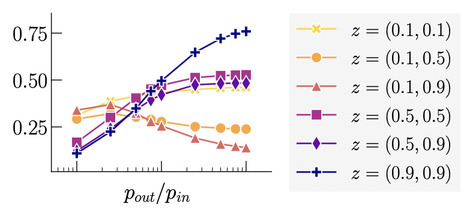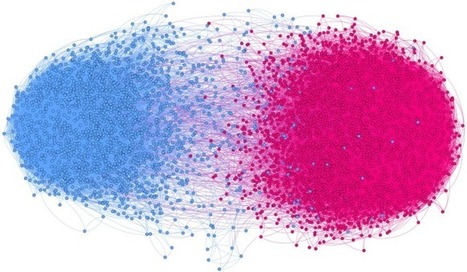Antoine Vendeville, Shi Zhou, and Benjamin Guedj
Phys. Rev. E 109, 024312
Online social networks have become primary means of communication. As they often exhibit undesirable effects such as hostility, polarization, or echo chambers, it is crucial to develop analytical tools that help us better understand them. In this paper we are interested in the evolution of discord in social networks. Formally, we introduce a method to calculate the probability of discord between any two agents in the multistate voter model with and without zealots. Our work applies to any directed, weighted graph with any finite number of possible opinions, allows for various update rates across agents, and does not imply any approximation. Under certain topological conditions, the opinions are independent and the joint distribution can be decoupled. Otherwise, the evolution of discord probabilities is described by a linear system of ordinary differential equations. We prove the existence of a unique equilibrium solution, which can be computed via an iterative algorithm. The classical definition of active links density is generalized to take into account long-range, weighted interactions. We illustrate our findings on real-life and synthetic networks. In particular, we investigate the impact of clustering on discord and uncover a rich landscape of varied behaviors in polarized networks. This sheds lights on the evolution of discord between, and within, antagonistic communities.



 Your new post is loading...
Your new post is loading...









